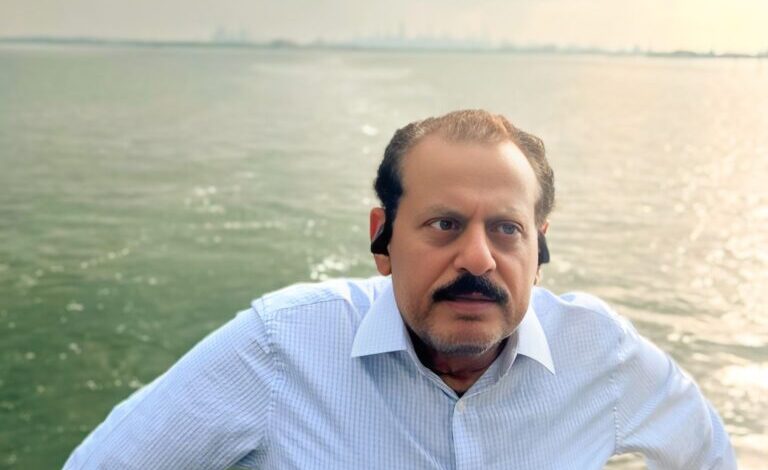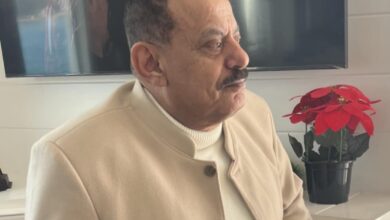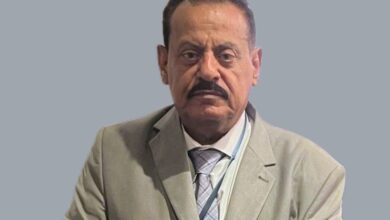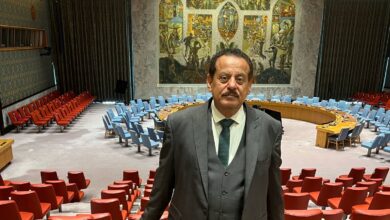Discovering Some Truth

Yemeni mp
Ahmed Saif Hashed
On January 18, 1986, I was informed and transferred to the square located between the Aden Post Office by the sea and the gate that became part of the offices of the Governor of Aden. This day was different for me, as I claim I discovered some truth within it.
The victors were arresting the defeated and those suspected of belonging to them. I heard muffled voices pleading for water, as if they were rising from the depths of a well that had dried up long ago, its surface buried with wood and stones, covered in earth. I did not know that there were prisoners crammed behind the thick walls before me. I was unaware that behind the heavy door were people threatened by death from thirst and suffocation.
When the jailer opened the door, I was taken aback by the unimaginable overcrowding. It was a suffocating congestion, cutting off breath. If someone stood, they could hardly sit down again without great difficulty, due to the extreme crowding. It was a crush that I believed, if it lasted any longer, would be lethal. Dozens of people, perhaps more than thirty or forty, were crammed into a space that could barely accommodate fifteen.
When this prison door opened, it felt as if I were witnessing the unboxing of minced meat. Oh my God, what is this?! Something unbelievable—something too great to comprehend. Lord, what is this that I see?! Am I dreaming, or is this reality resembling hell?
Our appearance to them seemed like a glimpse of relief sent by fate to allow them to catch their breath after despair and grimness. It was as if we brought them a lifeline from certain death. They looked at us as if the heavens had opened their gates. Some cried out for water, while others’ pleas had become mere gasps, their owners no longer able to articulate anything but gestures. Voices intertwined, and the words mingled in a way that we could no longer discern their beginnings from their ends. There was no light, no air—only a little air and drops of water became their last shred of hope in a life burdened by thirst, torment, and suffocation. Anyone who sees this throng, this overcrowding, with death evident on their faces, and does not stir a finger has committed an unforgivable crime—an immense burden, an act of great wrongdoing.
Anger mingled with my humanity, leading me to disbelief and rebellion. This scene was shocking and unprecedented for me, something I never thought I would witness. I rushed to bring them water, nearly clashing with one of the guards who tried to prevent me from giving them a jug of water. He insisted on stopping me forcefully, saying, “These people forced our comrades to drink from the sewers.”
I was ready to do anything insane to help these prisoners with water, prepared to commit any act that might awaken the conscience of those still alive. I was mentally prepared to face any possibility if I were forcibly prevented from handing the water to them. Yes, I was psychologically ready to do anything! Even those who opposed giving water to the detainees recognized my agitation, which was close to frenzy. My nerves were about to snap!
Every muscle in my body, especially in my face, trembled. My skin felt like a thin crust of earth, agitated beneath a violent volcano. Perhaps that’s why I managed to get the water to them. Yes, I succeeded in delivering water to those who cried out for it. I felt I had achieved a mission akin to that of a prophet who aided a people without killing or wasting a single soul. I succeeded in helping a group crammed into a space no larger than seven by seven meters.
“Crater” became one instead of two, but with a deep and wide wound—a wound greater than the entirety of the city. “Crater” became a scene of victors, while the defeated were being sought out for arrest. Everything in Aden and beyond lay shattered and torn, starting with the souls. The wounds were deep, and deeper still was the suffering and the unknown that awaited. I was not driven by emotion, but by the sight of dignity being trampled and lives being devalued.
I saw new detainees being brought into an interrogation room nearby. I heard heartbreaking accounts of how arrests were made by those who carried them out. They boasted of their actions as I was torn apart by pain. The raids and searches of homes were at their peak. Sadness erupted within me like a flood as I listened to the stories. One person had their home raided, dragged from their hiding place inside the wardrobe in the bedroom, while another was pulled from under the bed. Some were taken from beneath the stairs, from the bathroom, or from neglected corners of the house or rooftops—all amidst the anguish of families and the screams of children and women. And more atrocities were committed after the arrests.
As they bragged about searching homes, I remembered the search that took place at our house in the village after my brother was killed. My younger brothers had been forced to retreat to the cow and donkey shed. But once the search of the house was completed, they turned toward my younger brothers in the shed for another search, separate from the house. They screamed in terror and despair, their cries causing the officials to hesitate and ultimately refrain from searching it, content with searching my father’s house and that of my slain brother.
On January 18, 1986, one team began to emerge victorious while the other lost the battle. The victors referred to the defeated as “a gang,” while the defeated called the victors a “clique.” This is how comrades identified each other, amidst overwhelming enthusiasm and severe exclusion. The mobilization was perilous and fraught with tragedy, and what was worse was that both sides exhibited a complete absence of accountability.
January 18, 1986 marked a turning point with clear indicators of victors and vanquished. Those who joined the winning side after this date were perceived merely as opportunists, contributing nothing to the victorious roster. They were seen as those who rode the wave of triumph for self-interest, with no role in what they termed the resolution of the battle. This is how I heard the victors boast and speak in the square to which I was transferred.
It is true that one side committed a grave sin against the nation when it chose treachery and arms, but both parties were complicit in horrific killings outside the law, deepening societal divisions, and fostering regional and sectarian mobilization, inciting and fueling loathsome hatred. The result was the defeat of our country in the south in 1986.
These transgressions recurred, leading to Yemen’s defeat in the 1994 war, and in 2015, what remained of Yemen—its nation, state, and future—was destroyed. We continue to live through defeats, participating in the erosion and loss of Yemen. Yet, the worst of all is to label these national defeats as great victories or significant gains.
As for the torture and my reflections on certain tragedies, I will dedicate a space to my observations, which represent a part of the truth I learned that day and the days that followed. This does not absolve us from addressing the ongoing war, the tragedies, death, tyranny, hunger, and the unknown—issues that are a thousand times greater than what we witnessed in the events of January 1986.
* * *





